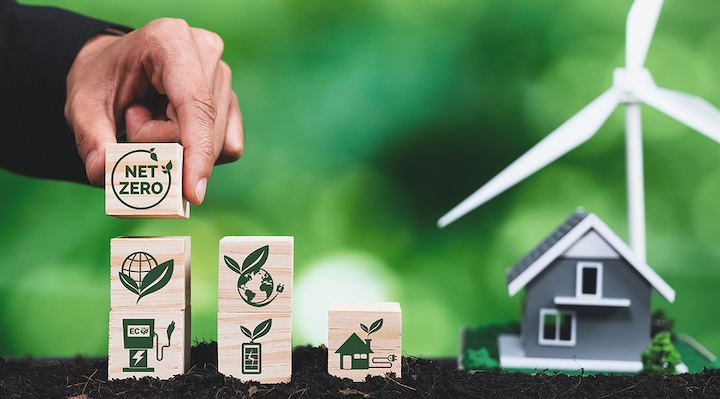The pressure on small businesses has never been greater to help reduce our global carbon footprint. SMEs are also becoming increasingly conscious of the potential impact on their businesses, with reports finding 75 per cent of companies worry about climate change.
While most would agree that incorporating eco-friendly practices is a worthwhile move, many under-resourced small business owners and sole traders might find the prospect overwhelming. For SMEs, that road is even bumpier than for enterprises due to barriers such as financial constraints and lower headcounts. Despite this, the good news is that 80 per cent of SMEs have already implemented green ambitions into their strategies locally.
So, how can Australia’s SME community lead the country towards reaching its net zero ambitions?
Switch to renewable energy providers
Many SMEs have been feeling the impact of high energy prices, especially since 1 July when utility bills soared again. That’s why it will be critical to make a switch to providers using renewable energy sources, such as wind or solar, as they emit little to no carbon.
Ultimately, the shift to renewables should also lower energy prices in the long run, making it a win-win situation for not only the environment but also for the SME owners paying the bills.
Invest in recycling initiatives
From using recycled materials for everyday operations to ensuring all materials are recycled appropriately, SMEs have a multitude of options to up their recycling game.
Sassy Organics is a perfect example of this. The small business not only removed all plastics from its packaging, they also designed their own eco-friendly versions, from biodegradable packing tape to the soy ink used for its logo. While they noticed higher costs at the start, the strategy paid off in the long run as it attracted more customers.
Upcycle your business’s waste
Upcycling your business’s waste may not always be possible, but is worth exploring to minimise landfill. Food manufacturer Rutherford & Meyer implemented sustainable waste practices at the core of its operations by producing crackers and snacks using grain leftovers from beer production. Not only that, but the company also sourced grain from a sustainable local brewery. By focusing on upcycling, the business not only cut down on waste, but it also supported the circular economy.
Partner up with an environmental organisation
Joining forces with environmental organisations is a great way to make your business more eco-friendly, as it can help to keep you on track with tangible carbon reduction goals.
At Prospa, we partnered with Trace, a Sydney-based climate start-up, to measure, reduce and offset its carbon emissions as part of its journey to net zero. By identifying opportunities to reduce our carbon footprint, like reducing emissions within the supply chain and moving ANZ operations to renewable energy providers, the business was able to move further towards zero net emissions
Engage employees in the process
Last but not least, engaging employees in the business’s net zero efforts will be rewarding for the whole organisation. As staff are the backbone of any business, ensuring their feedback on the company’s sustainability practices is heard should be a priority for every SME. Consider asking them how they feel about your current initiatives and seek their feedback on what they would do differently. Ultimately, this approach should allow everyone to drive awareness and advocacy not only in the workplace, but also at home.
The lack of red tape and their overall agility means SMEs are in an ideal position to lead Australia on its journey towards a more sustainable future. Whether they’re introducing recyclable packaging, upcycling waste, switching to renewable providers or partnering with a climate organisation, small businesses are establishing the green foundations needed to set future generations up for net zero success.













